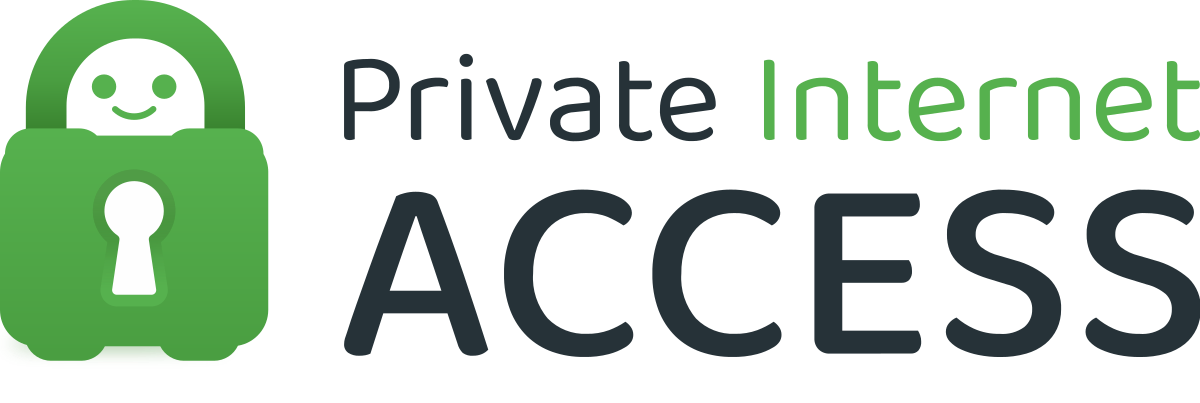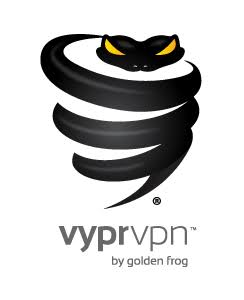Best VPNs for Australia (2024)

- Always evades internet control in the PRC
- Keeps ahead of the Netflix VPN detection algorithm
- Benchmark tests show excellent speed

- More US city locations than its rivals
- Includes malware protection
- No-logs policy

- No limit on the number of devices you can connect at the same time
- SOCKS5 proxy, which its main rivals don’t have
- More VPN servers in more US cities to dodge blackouts
Australians know the real value of a good VPN because they routinely rely on VPNs not only for the sake of better Netflix or Steam accessibility, but also for proper privacy and security. So, when going to Australia, do as the Aussies do.
Why use a VPN in Australia
A quick look at the news headlines shows that Australia is no stranger to cyber threats, state surveillance, content restrictions, and censorship.
Traditionally, Australia is the last priority amongst filmmakers, streaming services, and game developers when it comes to releasing a new product to an English-speaking market. This means you get fewer options when you want to stream TV shows, play PC or mobile games, or listen to music with an Australian IP.
On top of that, you have to pay an extra tax on your Steam and Netflix purchases. The Online Goods Tax – also called the Netflix Tax – mandates an additional 10% on digital goods Australians buy from foreign vendors on the Internet. Netflix seized the opportunity to roll out a new pricing structure for the region, with one tier of their subscriptions increasing by a whopping 20%. And as if all of this isn’t quite enough, Netflix libraries available to the Australian audience are significantly trimmed in comparison to US libraries.
Piracy is also an issue, as the Australian federal court ordered ISPs to block many popular torrent sites. Torrenting copyrighted content is a serious crime, and it comes as no solace that the ‘three strikes’ rule that obliged ISPs to notify torrenters on behalf of copyright holders was canned last year because it was too expensive to implement. When they find a cheaper way of penalizing the offenders, they’ll unleash the wrath of copyright Titans and trolls on torrenters. If this is you, beware!
Last year, Freedom House compiled a laundry list of laws that impose state surveillance and censorship, and grant state agencies unprecedented powers to snoop on your private life. For example, the Australian Data Retention Act requires ISPs and mobile carriers to retain your metadata for two years. Let that one sink in for a minute.
Law enforcement, spy agencies, and a ridiculous amount of state entities like the Post Office, Taxi Services Commission, and the National Measurement Institute enjoy warrantless access to the metadata of an entire nation. All they need to do is fill out a short request form, and your telco discloses everything they have on you.
Top that off with booming cyber crime – Australia is one of the top 10 most targeted nations. So, with the widely-adopted public WiFi hotspots across the country, there’s a whole load of reasons to use a VPN.
That’s not to say you only need a VPN to spoof into the US or UK. You also need one to spoof in Australia, as the censorship of video games and websites hosted in Australia is one of the strictest in the western world. So if you are an Australian traveling abroad, you may find that your favorite Channel 9 – whose slogan is, ironically, Welcome Home! – is unavailable.
You absolutely need a VPN for Australia if anything from the following list is important to you:
- Protecting yourself from hackers and secure your internet connection
- Enjoying anonymity
- Securing your privacy from state surveillance
- Avoiding Australian Site Blocking Bill and Data Retention Law
- Accessing geo-restricted content
- Avoiding the notorious “Netflix tax”
- Accessing Australia-only content from abroad (Channel 9, Stan TV)
Ranking criteria:
My top seven picks of VPNs for Australia are based on:
- Wide server availability, including locations outside the 14 Eyes territories, and fast speeds
- Rock-solid security and transparent zero-logs privacy policies
- Reproducible and consistent performance when unblocking geo-restricted content and P2P file-sharing
- User-friendly cross-platform clients the best price per value proposition and a reputation of excellence
1. ExpressVPN

- Always evades internet control in the PRC
- Keeps ahead of the Netflix VPN detection algorithm
- Benchmark tests show excellent speed
ExpressVPN is one of the fastest VPNs out there, with a huge network of stealth servers in 94 countries, including Australia and the US. Their VPN client comes packed with AES-256 encryption, OpenVPN protocol, and SmartDNS, so you can unblock Netflix or any other streaming service on virtually any platform.
Pros
- Installs on routers
- Simultaneous connection allowance of five devices
- Split tunneling
- Large choice of server location
- Very strong connection encryption
Cons
- One of the most expensive VPN services
- China blocks its main website (but not functionality)
- Live chat support is not always responsive
ExpressVPN is also watertight on anonymity and does not log any traffic data or DNS queries. They’re conveniently based in the British Virgin Islands, which is exempt from the 14 Eyes spying and anti-piracy laws. It supports unlimited P2P torrenting and gaming with consistently great speeds.
On the downside, you can only install ExpressVPN on three devices, which is a bit too tight if you ask me. That said, the apps are sleek and flexible and come with a kill switch, auto-connect, and DNS leak protection.
ExpressVPN offers a 30-day refund on all plans, and an annual subscription lands you a pretty good deal for $99.95 per year. Their bi-annual plan is reasonably priced at $60 while the monthly subscription comes at $13.
2. NordVPN

- More US city locations than its rivals
- Includes malware protection
- No-logs policy
NordVPN is at the best in the market, with 830+ server locations and a decisive pro-privacy zero-logs stance. It’s one of the few providers that can bypass Netflix’ VPN blocks with reliable consistency, and its Australian servers come in handy when you need to spoof into Australia.
Pros
- A large number of servers
- Threat protection with a proprietary security system called CyberSec
- Split tunneling
- Obfuscated servers for China and other locations where VPNs are discouraged
- No-logs policy
- Automatic wi-fi protection
Cons
- Parts of the server network have poor download speeds
- No servers in India
- Onion over VPN can be slow
NordVPN supports any desired protocol including OpenVPN, and it manages its own DNS servers to avoid leakage. They’re also based in Panama, which means no 14 Eyes surveillance and fairly lax anti-piracy laws. Top that off with a kill switch, double encryption, VPN into Tor, and you’re in for safe surfing.
NordVPN lets you enjoy P2P torrenting, gaming and HD video streaming, powered by blazing-fast speeds and unlimited bandwidth. Understandably, double encryption connections can be slower than the AES 256-bit.
The software suite is hands down one of the most intuitive and comes pre-configured, so you can easily pick ultra-fast servers for gaming and streaming, or ultra-secure when working with sensitive data. It also offers cross-platform support, and you can use it on up to six devices.
Monthly plans are $12. Their bi-annual subscription drops down to $42 and an annual plan comes in at $70. By far, NordVPN’s long-term plan offers the best value for the money, especially since it’s backed by a generous 30-day refund policy.
3. IPVanish

- No limit on the number of devices you can connect at the same time
- SOCKS5 proxy, which its main rivals don’t have
- More VPN servers in more US cities to dodge blackouts
IPVanish is an all-around top-drawer VPN for Australia, with hundreds of servers in 60+ countries (including Australia). So expect lightning-fast connections for your HD streaming, gaming, and P2P file-sharing. They keep no logs and let you connect up to five devices.
Pros
- Good at dodging blackouts on US sports streaming sites
- A large IP address pool
- Split tunneling available
- Strong IP leak protection
- IPVanish support is available around the clock via chat and email
Cons
- No app for Linux
- No browser extensions
- 30-day money-back guarantee only for the annual plan
- Prices increase after the first subscription period
- No malware or antivirus service
IPVanish ships a feature-rich cross-platform software complete with 256-bit AES encryption, unlimited bandwidth, and SOCKS5 web proxy. Being one of the top contenders on the list that let you spoof into the US and UK, IPVanish has no issues unblocking the US libraries of Netflix, Steam, and BBC iPlayer.
They also own their servers, which means no third parties manage your data. On the downside, they’re based in the US, so data retention laws apply, but then again, they keep no logs in the first place.
IPVanish is also relatively affordable. Their monthly subscription is positioned at $10 per month, but the annual plan cuts that down to $6.49 per month, while all subscriptions have a seven-day money-back guarantee.
4. SlickVPN

- Custom software for Windows and Mac
- Up to 5 simultaneous connections
- Strong encryption and zero logs
SlickVPN offers one of the best price-per-value deals, with 150+ servers in 124 locations, Melbourne and Sydney included. They keep no logs and deploy a Hydra technology to route your traffic through multiple gateways.
Pros
- Custom software for Windows and Mac
- Up to 5 simultaneous connections
- Strong encryption and zero logs
- Hydra multi-hop for secure connections
- Supports P2P, HD video streaming
- Unlimited bandwidth
- Unblocks BBC iPlayer
- 30-day money-back guarantee
- Accepts Bitcoin
Cons
- Leaks DNS
- Inconsistent performance
- UI lacks usability
- Doesn’t unblock Netflix US
- May share your payment details with third parties
- US-based
The speeds might not be stellar, but they’re reasonably decent, and you can have it on up to five devices per subscription. The downside is they don’t have mobile apps, so that leaves you with Mac and Windows only, and you need to make sure you follow the installation instructions carefully to avoid setup hiccups.
On the bright side, they don’t cap your bandwidth and allow unlimited P2P torrenting. SlickVPN also works remarkably well when unblocking streaming sites, and it’s by far one of the most conveniently priced VPNs with a 30-day refund policy. Their monthly plan starts at $10/month, while the 3-month subscription will set you back $20. The $48 yearly subscription is, quite frankly, dirt-cheap.
5. Private Internet Access

- More locations in the USA, aims to provide a server in every state
- Makes excluding apps and sites from the VPN very easy
- Real customer service, not just a chatbot
Private Internet Access offers massive server coverage, including Australia, so you get a pretty good and reliable connection. PIA is a property of the US-based Trust Media, so unfortunately US data retention laws and subsequent surveillance apply.
Pros
- PIA is one of the few VPNs to have a server in China
- Security features include malware, tracker, and ad blocker
- Good choice of dedicated IP address locations
- Antivirus add-on
- A strong no logs policy
- Easy to use VPN app functionality
Cons
- Can’t get into Amazon Prime or Hulu
- Doesn’t state how many servers it operates
On the other hand, however, they use robust encryption, OpenVPN, ad and malware blocking, and keep no traffic logs. They even pulled out of Russia because they could no longer guarantee their customers’ privacy under the new Russian data retention laws.
That said, their software is easy to get the hang of, and comes with a bunch of extras and customizable perks. Most of you will love how they have no restrictions on P2P and allow up to five simultaneous connections, so you can stream, torrent, and play all you want.
All subscriptions ship with a 7-day refund policy and the $39.95 annual plan is a clear winner if you’re on a tight budget. The monthly subscription comes at a fair $6.95, and the bi-annual drops down to $36.95. You can pay anonymously using gift cards, which makes it even easier to stay below the radar.
6. VyprVPN

- Golden Frog, the business behind VyprVPN also runs a gaming platform
- VyprVPN pioneered obfuscation techniques and they have always worked well
- VyprVPN’s no logs policy is confirmed by an independent audit
VyprVPN is a big player in the VPN market, and owns/manages all of its 700 servers. As a result, they boast quite impressive speeds and performance, effortlessly unblock streaming sites like Hulu and Netflix, and offer an intuitive, clean-cut, cross-platform client complete with 24/7 support.
Pros
- Dodges detection, even in China
- Simultaneous connection allowance of ten devices
- Split tunneling
- Large choice of VPN server locations
- Can unblock a lot of premium streaming services
Cons
- One of the most expensive VPN services
- No VyprVPN app for Linux or Chrome OS
- No browser extensions
- Can’t get into Disney+, ABC, NBC, or Channel 4
VyprVPN is the property of Switzerland-based Golden Frog, so count on rock-solid privacy here: no data retention laws, zero logging policy, OpenVPN protocol, 256-bit encryption, and a proprietary Chameleon encryption topped with a VyprDNS. Even though Vypr supports P2P file-sharing and does not limit your bandwidth, they have spoken out against illegal torrenting.
Recently they revamped their pricing structure, and now offer two plans that can be billed on an annual or monthly basis. They offer no refunds, but you can test the service for free with the three-day trial. The Basic plan covers three devices and comes at $60/year billed annually, and $120/year billed monthly. The Premium plan covers five devices and comes with a bag of goodies like a kill switch, Chameleon protocol, VyprVPN Cloud, and DPI protection, and costs $80/year when billed annually or $155.4/year when billed monthly.